The Hunger Games – Suzanne Collins
Book Published: 2008 | Movie Released: 2012 | Genre: Dystopian Young Adult Fiction
Step right up, tributes! In one corner, we have The Hunger Games book, packed with raw emotion, an intense inner monologue and a healthy dose of rebellion. In the other, the blockbuster film, explosive visuals, raw and emotional acting and enough drama to shake the Capitol. But which version hits harder? That’s what we’re here to find out.
I first read The Hunger Games back in secondary school, when I was about 11 years old, and like most of us at that age, I was devouring the YA genre. I have incredibly vivid memories of the trilogy. I still remember exactly where I was when I finished Mockingjay, and the profound effect the books had on me. Honestly, I think the socially conscious person I am today was born somewhere between those pages.
So naturally, I was first in line when the movie adaptation hit cinemas. And at the time? I didn’t love it. In fact, I was very vocal about my disappointment. It felt like the film had stripped away some of my favourite parts of the book, more on that later.
That said, with age (and a better understanding of what makes a screen adaptation work), I’ve softened my stance, and I will be explaining what I felt worked and what upset me most. While this review focuses on The Hunger Games (Book 1 vs. Movie 1), I do want to say: the second and third films? Some of the best book-to-screen adaptations I’ve ever seen. They’re not flawless, but they absolutely do Suzanne Collins justice – and that’s more than a lot of adaptations can say.
I’ll admit up front, there’s definitely a risk of this coming across as biased. I genuinely loved these books, and that includes the prequels that have followed. The Ballad of Songbirds and Snakes was, in my opinion, a sensational adaptation, and right now I’m reading Sunrise on the Reaping, which is gutting me more and more with every page.
So let us get into what hits and what misses.
Synopsis
In the ruins of a place once known as North America lies the nation of Panem, a shining Capitol surrounded by twelve outlying districts. The Capitol is harsh and cruel and keeps the districts in line by forcing them all to send one boy and one girl between the ages of twelve and eighteen to participate in the annual Hunger Games, a fight to the death on live TV.
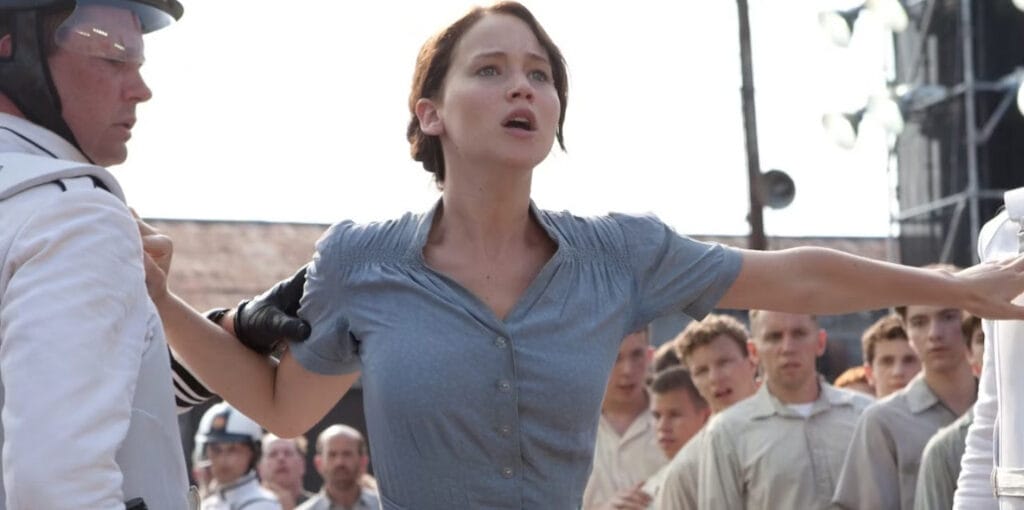
Sixteen-year-old Katniss Everdeen regards it as a death sentence when she steps forward to take her sister’s place in the Games. Without really meaning to, she becomes a contender. But if she is to win, she will have to start making choices that weigh survival against humanity and life against love.
Characters
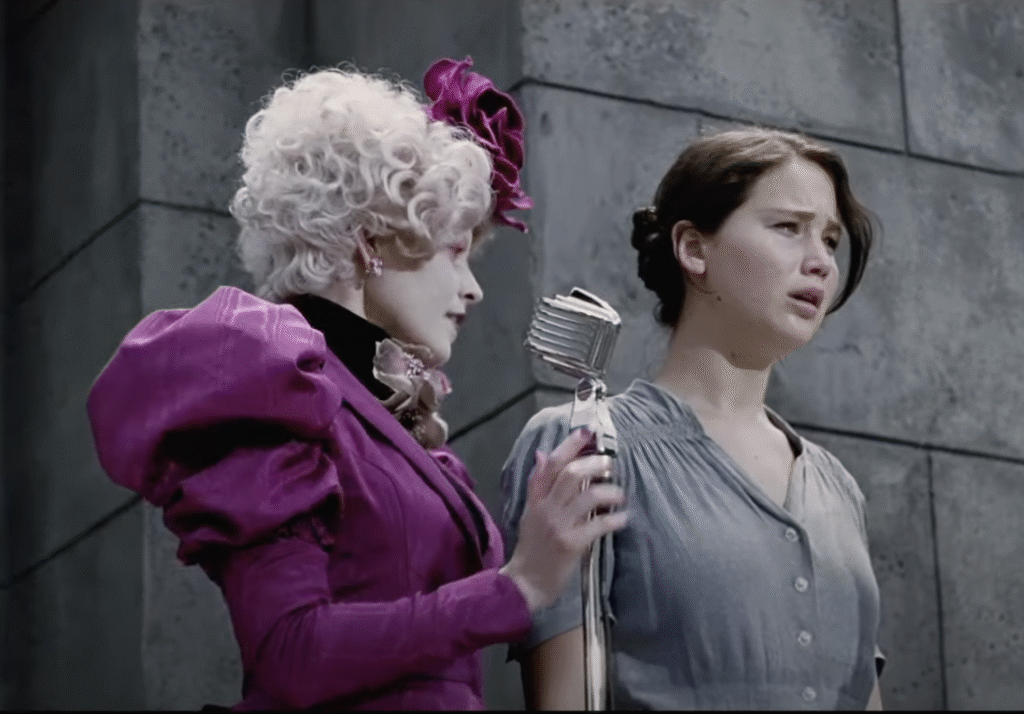
Honestly, the movie has a near-perfect casting. Jennifer Lawrence does a splendid job as Katniss Everdeen. Elizabeth Banks gives a stunning performance as Effie, Donald Sutherland (RIP) perfectly captures the nefariousness that was President Snow, and Stanley Tucci consistently steals the show. I could continue name-dropping every single actor and what I loved and disliked, but we’ll be here for far too long, and there’s way more to focus on.
Perspective
We’re going to start with the perspective from which we are consuming both formats. The book is told entirely from Katniss Everdeen’s first-person point of view, limiting the reader’s knowledge to what she knows and experiences. It is widely accepted that Katniss is an unreliable narrator for many reasons that we will get into. However, this is not because she is necessarily lying, but because her understanding of the world is extremely limited.
The movie, however, expands the narrative, allowing the audience to witness scenes from other characters’ viewpoints, including President Snow and the Gamemakers. It gives us a far less subjective view of Panem. However, this doesn’t make it any less insidious – if anything, it makes it more so – but it does allow us to see Panem as it truly is, rather than through Katniss’s often flawed interpretation.
The film expands completely on the world that is Panem, we see and understand the spectacle that is the Hunger Games and how the Capitol feeds on it. It sets up the world Suzanne Collins has created quickly and effectively. It is definitely my favourite part of the adaptation. We get to see the world in its entirety.
Themes
The themes in the film are just as powerful as they are in the book, though they come through from a different angle. The movie requires far less deductive reasoning; it’s not subtle in the slightest, but honestly, it doesn’t need to be. We’re given a clear and direct look at collective punishment, oppression, resistance, societal inequality, the power of media, and the consequences of violence as entertainment.
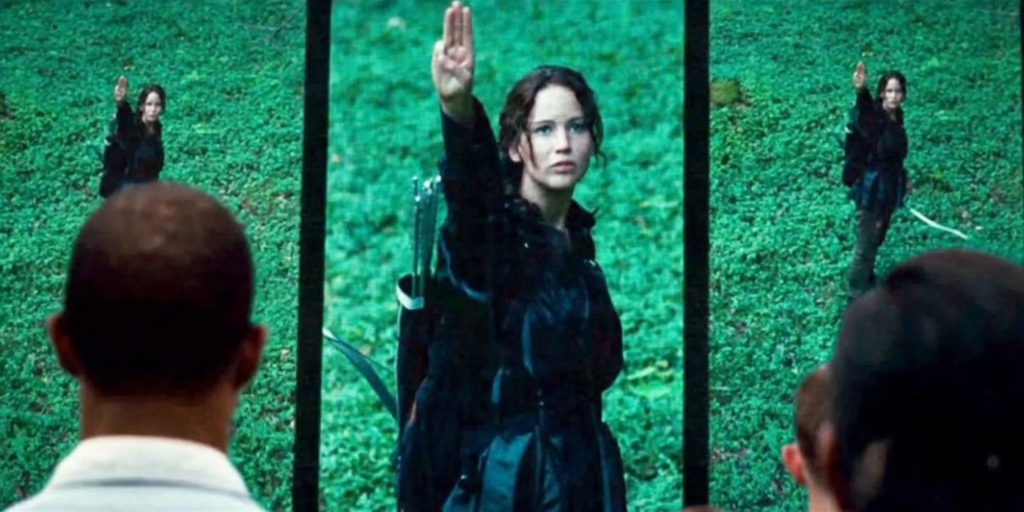
The adaptation places particular emphasis on media manipulation, how narratives are crafted, how public opinion is shaped, and how easily we consume inequality and depravity through our screens without blinking. It subtly critiques our desensitisation to violence and injustice. The lesson Suzanne Collins is trying to teach lands just as effectively on screen as it does on the page, but it just hits differently. It is just as pertinent now in light of the atrocities happening in Gaza today as it was in Iraq when Suzanne Collins wrote the book.
Worldbuilding
The film does a great job of capturing the depravity and insidiousness of Panem. However, when it comes to the visuals, particularly the Capitol, I’m not sure if the book’s descriptions were skewed by Katniss’s perspective. Her world is so dimmed by trauma and survival that the Capitol feels even more surreal and grotesque by contrast. In the movie, while the Capitol is certainly over-the-top and cartoonish, it still doesn’t quite match the extravagance and absurdity described in the book. Somehow, despite its theatrical flair, it still feels slightly toned down on screen.
Violence
The movie, while intense in its own right, still tones down some of the more brutal and explicit violence depicted in the book, granted it’s a 12 rating. From the very first chapters, we get a clear sense of how little regard the Capitol has for the lives of those in the outer districts. The harsh conditions in District 12 and the violent control exerted by the Peacekeepers reveal just how oppressive this world is, even before we encounter the true horror of the Gamemakers and the arena itself.
The film touches on these elements, but it doesn’t quite reach the same level of brutality described in the book. I remember reading it at 11 years old and feeling unsettled. Honestly, even now as an adult, I look back on it and think, woah, that was a lot for my poor child brain. The Hunger Games is explicit. It doesn’t shy away from the violence, and that’s part of what makes it so powerful.
One thing the film does handle well in this regard is its portrayal of the Capitol’s technological advancements and the sheer scale of what they’re capable of. This is expanded even further in the second film during the Third Quarter Quell, where we see just how sophisticated – and deadly – the arena truly is.
The Love Story
The book offers far more intimate access to Katniss’s emotions and internal conflicts, details that the movie either condenses or leaves out entirely. One of my biggest frustrations with the adaptation is how Katniss and Peeta’s relationship is portrayed. In the book, it’s painfully obvious to everyone except Katniss that Peeta is in love with her, and has been for the entire trilogy. Katniss misses the signs, almost willfully at times, but through her internal monologue, we understand that she genuinely doesn’t see it. Meanwhile, Peeta’s feelings are made very clear, and we slowly watch Katniss’s feelings begin to surface in a way that feels organic and earned.
“And then he gives me a smile that just seems so genuinely sweet with just the right touch of shyness that unexpected warmth rushes through me.”
Suzanne Collins, The Hunger Games
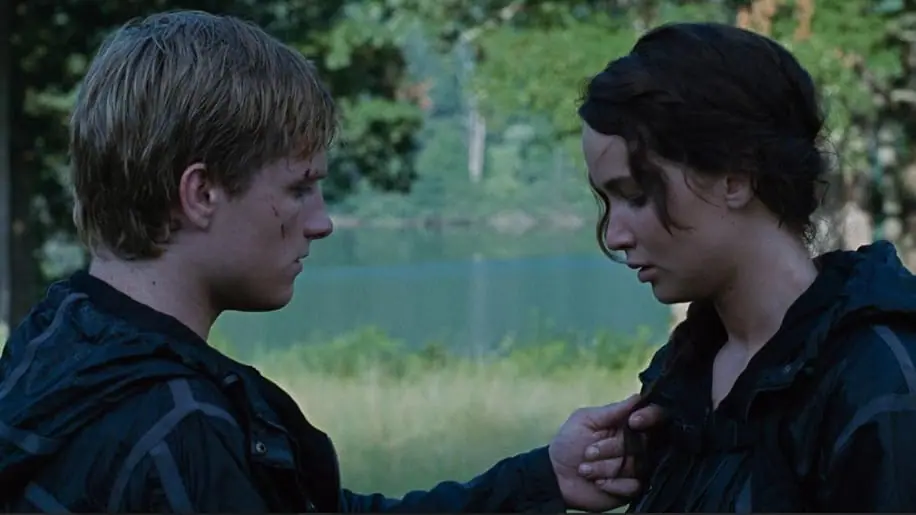
The film, however, massively downplays this dynamic. Peeta comes across as almost indifferent towards her, which undermines the emotional weight of their connection. As a result, the final act, where they’re willing to sacrifice themselves, feels less about love and more like a cunning device to throw off the game makers, which it is, but not in isolation. It becomes more of a teen action dystopian movie and less driven by the very real and big emotions that underpinned every decision Katniss made. The depth of their bond just doesn’t translate the same way.
Final Thoughts
Overall, I think the Hunger Games and its subsequent movies are just as good adaptations as they are books. They build on areas we aren’t able to experience in the book while still carefully following Katniss’ journey from tribute to revolutionary.
The book provides a more intimate and detailed perspective on Katniss’s journey, while the movie offers a broader, more visually engaging experience. Both versions offer a compelling narrative of the Hunger Games; they simply cater to different preferences and provide different levels of insight into the world of Panem.
As much as I do enjoy the movies, the books still and will forever have my heart, but as far as adaptations go this is a fairly good one and it does the book justice.
What do you think? Did the movie miss the mark, or would you even consider it better than the book? Gasp!
I’m excited to hear your thoughts, and I hope you enjoyed the first instalment of my monthly Book vs Screen series! I had a great time putting this one together, though I’ll admit, it required a bit more research, reading and watching. For the next edition, I might choose something I’ve consumed more recently, just to save myself the deep dive. Either way, I’m looking forward to sharing more soon!
Do stick around and explore some of my other posts!
Signed,



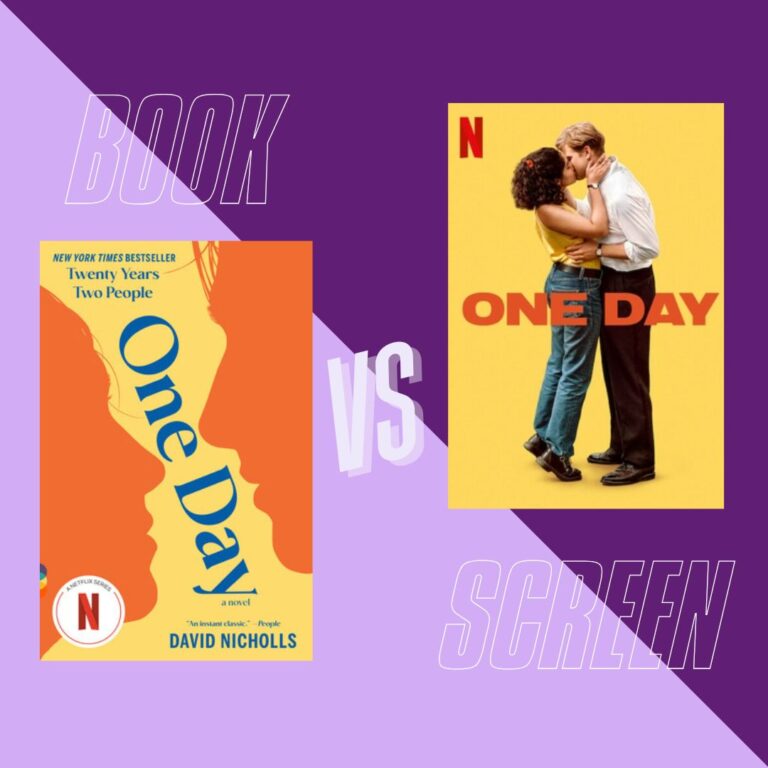

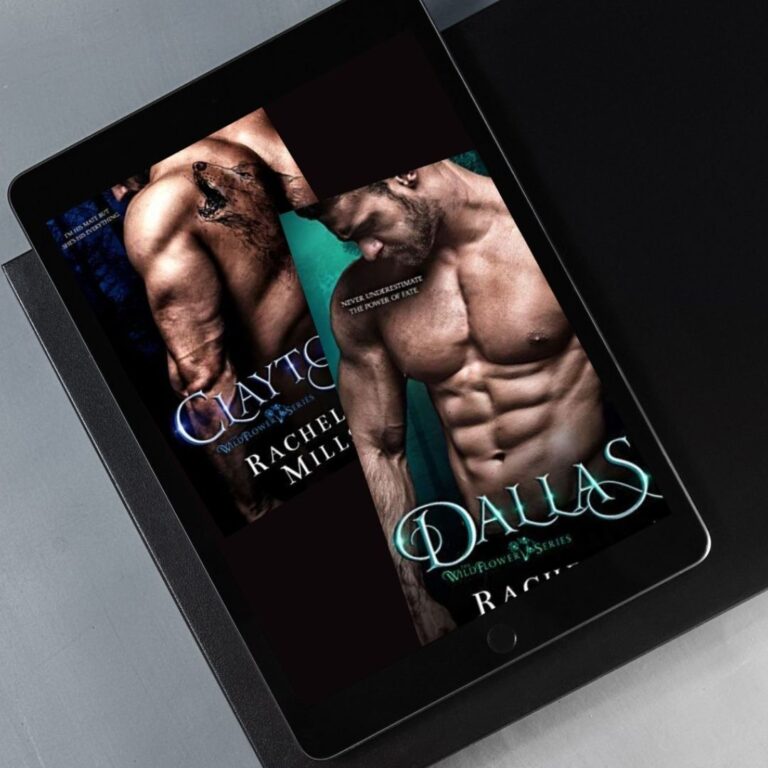
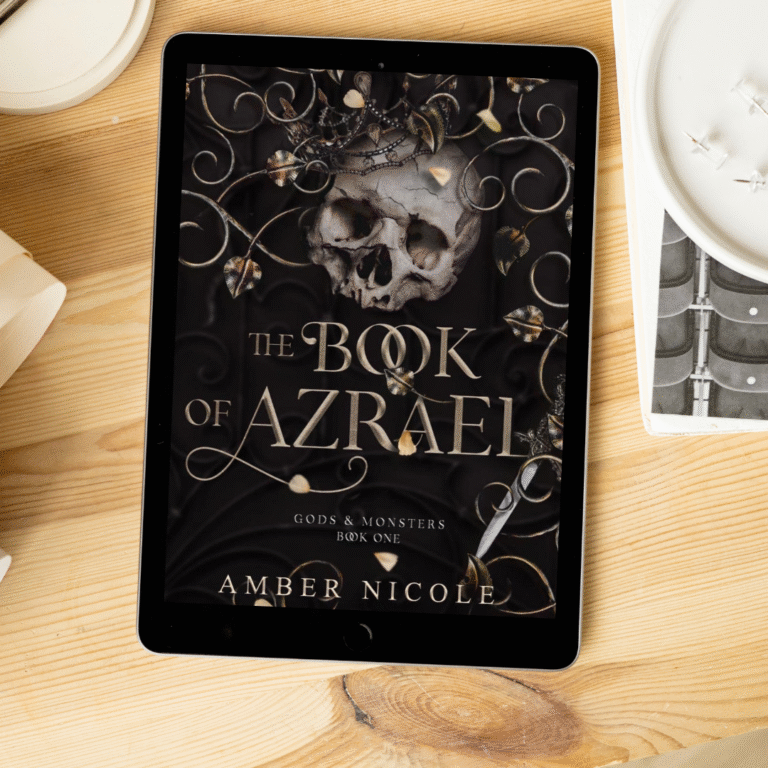

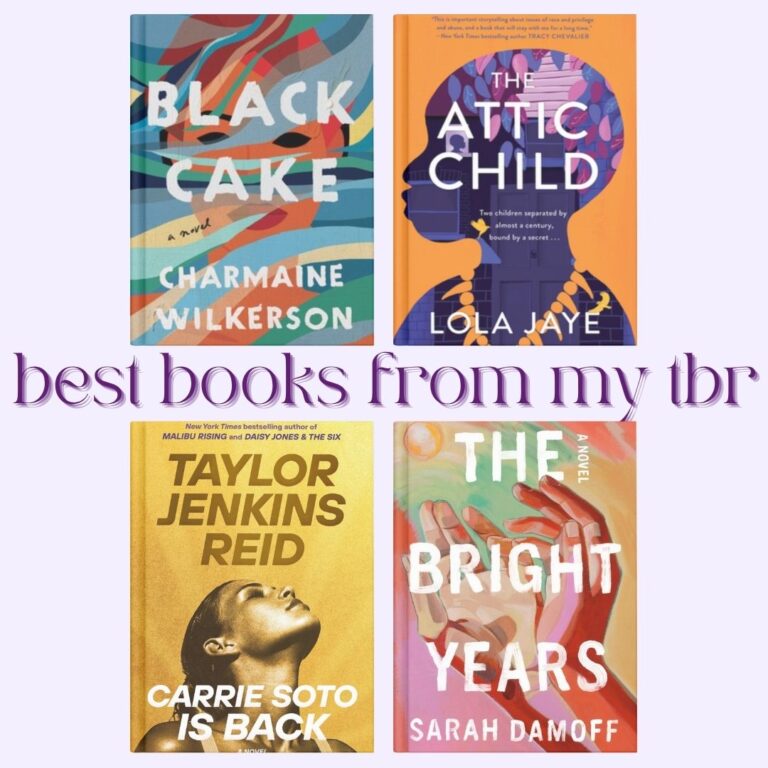
I loved, loved, loved the last book growing up and don’t think they could have done anything to make me like the movie better. It was fun to see the extravagance portrayed and casting was perfect, so I agree it was a great adaptation overall they’re just going against a biased bunch 🥹